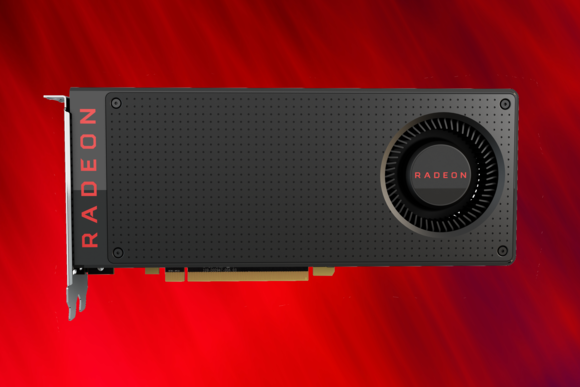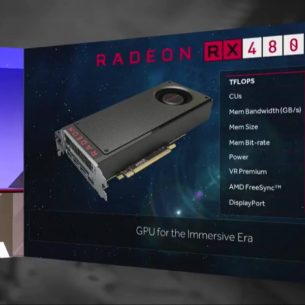AMD’s latest graphics card – the Radeon 480 – promised the performance of Nvidia’s previous generation near top end Geforce 970 for the shockingly low $199 USD. After only a few days users began reporting that the 480 was drawing more power from the PCI-Express port than it was drawing from the power supply connector. Is this a harm to user’s machines? AMD has issued a statement along with a promise to address the issue with an upcoming driver update.
I’ve been following the AMD Polaris architecture for months now and, of course, I got swept up into the hype surrounding the potential performance of the card. Benchmarks aside, the Radeon 480 looks to be the entry point for VR Early Adaptors who didn’t plunk down the coin for the Geforce 970 last year.

So, if you are looking to upgrade your graphics card should you be concerned about the amount of power that the 480 might draw from your board? Well, the bad news is that the card is going to draw more power than the PCIE specification. The card will pull just 75W from the six pin connector and the remaining 90W from the PCIE connector – 15 Watts over the recommended power consumption for a PCI Express slot.
YouTuber OzTalksHW tried out the Radeon 480 on an older motherboard and found similar issues to what testers have found – if are running a motherboard from the last five years or so you should be fine dealing with the power spike. If you’re running a motherboard from 2009 or prior you may experience random system shutdowns.
PCWorld spoke with anonymous motherboard manufacturers who said that random spikes shouldn’t be an issue but a sustained increased power-load could lead to damaged hardware. It should be noted that while discussions of this “power-gate” has been rampant on sites like reddit but the net hasn’t been flooded with reports of fried motherboards. AMD has said in a statement that a driver fix is expected to be issued tomorrow.
Here is the full statement:
“As you know, we continuously tune our GPUs in order to maximize their performance within their given power envelopes and the speed of the memory interface, which in this case is an unprecedented 8Gbps for GDDR5. Recently, we identified select scenarios where the tuning of some RX 480 boards was not optimal. Fortunately, we can adjust the GPU’s tuning via software in order to resolve this issue. We are already testing a driver that implements a fix, and we will provide an update to the community on our progress on Tuesday (July 5, 2016).”
I’ve ordered a Radeon 480 and will gladly post some benchmarks using some of the most demanding titles that I own as well as some VR benchmarks. Unfortunately, these benchmarks will not include comparisons of other graphics card as my main gaming rig is currently down for repair 🙁 .. RIP previous graphics card.
Do you already own the Radeon 480? If so let me know what you think about it in the comments below.
